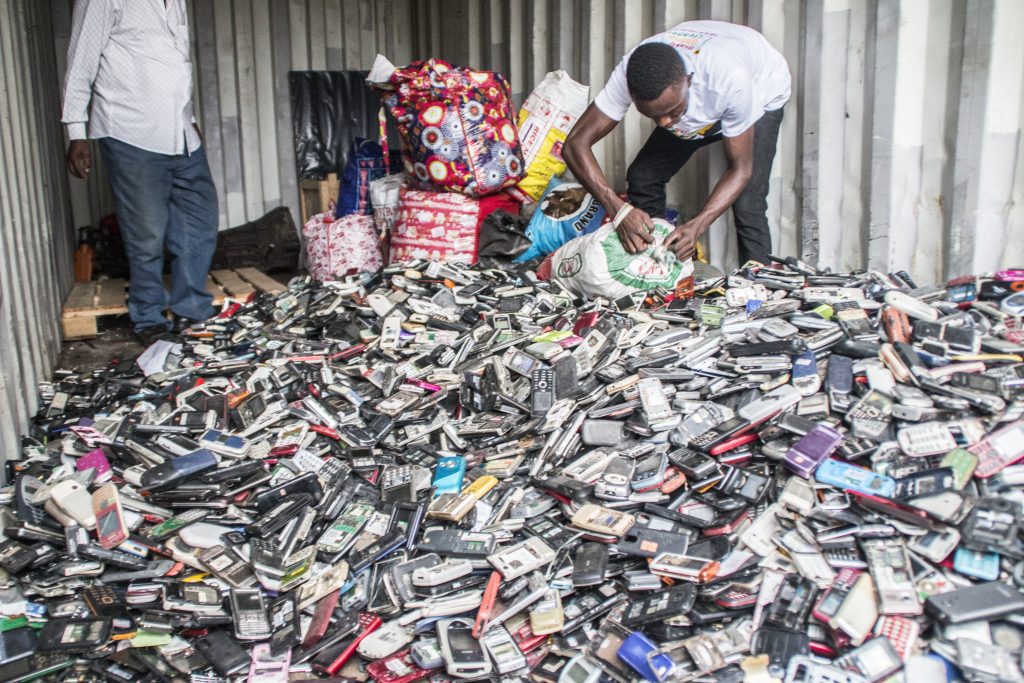
Photo by Fairphone/Closing The Loop. Under Creative Commons license “Attribution-NonCommercial-ShareAlike CC BY-NC-SA.”
Download the report here
This new report, a collaboration between the Partnership for Conflict, Crime and Security Research (PaCCS), the Centre for Maritime Law and Security Africa, and SafeSeas, explores the extent, nature, and impact of the e-waste trade between the UK and Ghana by mapping sites along this route. These sites act as categories in which key actors in the e-waste trade have been grouped in order to understand their significance, how they interact, how the illicit aspect of the e-waste trade is formed, and the main factors that drive this trade.
Authored by Kanchelli Iddrisu, the research consists of a literature review, interviews with 44 individuals and representatives from institutions in the UK and Ghana, and surveys handed out to these interviewees.
It makes a number of conclusions, including:
the domestic consumption of imported new and used electronics in Ghana is a major source of e-waste, with this site of e-waste generation being overlooked in much of the existing literature;
poverty is the underlying factor of the unregulated e-waste trade, and there are not enough interventions acknowledging and addressing this; the question of whether illicit e-waste operations can be categorised as ‘serious organised crime’ (SOC) requires more research;
and there needs to be a deeper understanding of the risks, harms and consequences of these activities, in order to determine the resources that should be allocated to fighting this trade.
Based on this, it makes a number of recommendations, including:
Ghana should decentralise institutions linked to reducing e-waste flows, with a stronger focus on regions in the North of Ghana; namely the Upper West, Upper East, North East, Savannah and Northern regions;
Digitisation of data should be improved across institutions to increase access to e-waste statistics;
Enforcement agencies and prosecutors should be more aware of the crimes that are concealed or made possible due to the logistical network that the e-waste trade provides;
The return of shipments of e-waste back to the UK should be facilitated;
and UK manufacturers and consumers should be made more aware of their role in this trade.
Kanchelli Iddrisu is a researcher and PhD student in Education at the University of Cambridge. Her doctoral research focuses on youth unemployment in Ghana, examining the responses young people have to this issue. She also works in a law firm, specialising in anti-corruption research in West Africa. Kanchelli holds an LLB from Kings College London, an LPC/LLM from the University of Law and an MPhil in Education, Globalisation and International Development from the University of Cambridge.
This project was commissioned by the Partnership for Conflict, Crime and Security Research (PaCCS). It involved a placement with the Centre for Maritime Law and Security Africa, based in Accra, Ghana. Interviews and surveys were used to scope out the extent, nature and impact of e-waste smuggling on the UK to Ghana route. This project was supervised by Dr Tristram Riley-Smith (PaCCS Research Integrator), Professor Tim Edmunds (Safe Seas Co-Director), and Dr Kamal-Deen Ali (Executive Director of the Centre for Maritime Law and Security Africa).
